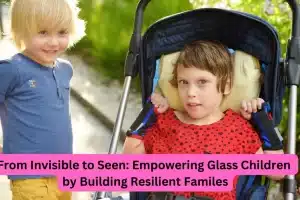Obesity frequently becomes a lifelong issue. The reason most obese children and adolescents gain back their lost pounds is that after they have reached their goal, they go back to their old habits of eating and exercising.
by Karen Sibal
Here are some other things parents can do to ensure their children maintain a healthy weight. The American Academy of Child and Adolescent Psychiatry suggests the following:
- start a weight-management program or attend a support group
- change eating habits gradually over time (eat slowly, develop a routine)
- plan meals and make better food selections (eat less fatty foods, avoid junk and fast foods, eat more fruits and vegetables)
- control portions and consume less calories
- increase physical activity (especially walking) and have a more active lifestyle
- know what your child eats at school
- eat meals as a family instead of while watching television or at the computer
- do not use food as a reward – this is really important!
- limit snacking or provide your children with healthier snack alternatives
Obesity frequently becomes a lifelong issue. The reason most obese children and adolescents gain back their lost pounds is that after they have reached their goal, they go back to their old habits of eating and exercising. An obese child must therefore learn to eat and enjoy healthy foods in moderate amounts and to exercise regularly to maintain the desired weight. Parents of an obese child can improve their child’s self esteem and emotional well-being by emphasizing the child’s strengths and positive qualities rather than just focusing on their weight problem.
There’s no question that obesity is becoming a national, and even a global epidemic. Adults and kids alike are getting bigger and wider. We need to question the toll this will take on the future health of the nation, our healthcare system and our economy. As parents, we need to talk more about this issue – within our schools and in our communities and adopt healthy lifestyle choices for our own good. But talk alone is not enough – we need to get moving … NOW!
References:
- American Academy of Child and Adolescent Psychiatry, www.aacap.org.
Biography
Karen Sibal is a freelance writer, researcher and communications consultant. She is the owner of Sibal Writing and Consulting, a firm that specializes in public policy research, effective communications and web solutions for all types of organizations. Over the past 16 years, Karen has done work for local and provincial governments and several not-for-profit organizations. She is pursuing a Master’s degree in Public Policy and Administration in September 2006.
Karen has written extensively on children’s issues and has helped with launching an association for mothers and children in her community. She is a member of the Halton-Peel Communications Association and a board director with the Halton Multicultural Council. She has also served as the managing editor of a government child welfare journal.
Karen lives with her husband and two girls, ages 3 and 9 years, in Oakville, Ontario Canada. For more information about Karen, please visit her web site at www.sibal.ca or call 416-580-9097.
No part of this article may be copied or reproduced in any form without the express permission of More4Kids Inc © 2006
Posting Search Tags: Parenting Children Health Obesity
More4kids is a parenting and community blog established back in 2015.












Add Comment